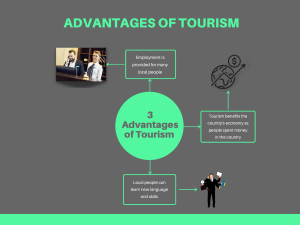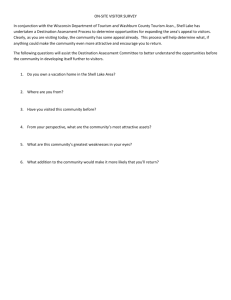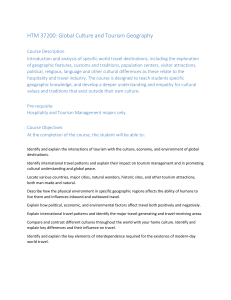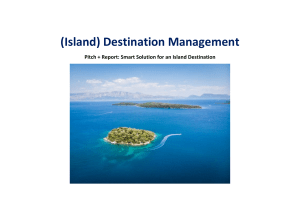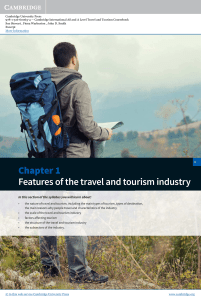PESTLE Analysis: Understanding External Market Influences
advertisement
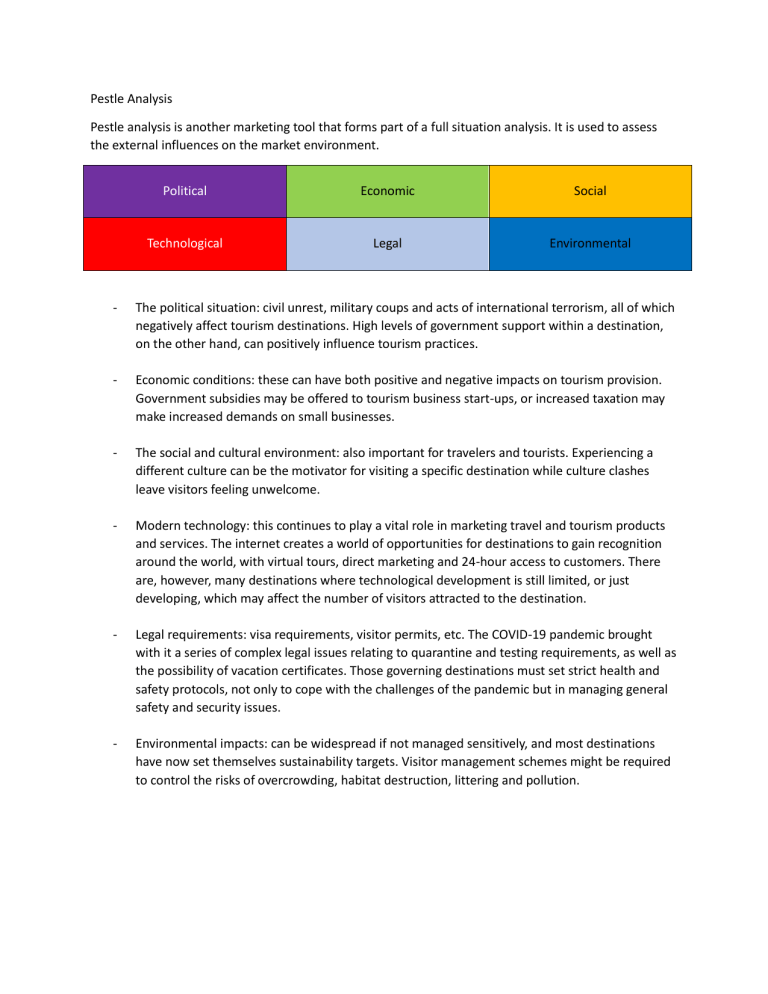
Pestle Analysis Pestle analysis is another marketing tool that forms part of a full situation analysis. It is used to assess the external influences on the market environment. Political Economic Social Technological Legal Environmental - The political situation: civil unrest, military coups and acts of international terrorism, all of which negatively affect tourism destinations. High levels of government support within a destination, on the other hand, can positively influence tourism practices. - Economic conditions: these can have both positive and negative impacts on tourism provision. Government subsidies may be offered to tourism business start-ups, or increased taxation may make increased demands on small businesses. - The social and cultural environment: also important for travelers and tourists. Experiencing a different culture can be the motivator for visiting a specific destination while culture clashes leave visitors feeling unwelcome. - Modern technology: this continues to play a vital role in marketing travel and tourism products and services. The internet creates a world of opportunities for destinations to gain recognition around the world, with virtual tours, direct marketing and 24-hour access to customers. There are, however, many destinations where technological development is still limited, or just developing, which may affect the number of visitors attracted to the destination. - Legal requirements: visa requirements, visitor permits, etc. The COVID-19 pandemic brought with it a series of complex legal issues relating to quarantine and testing requirements, as well as the possibility of vacation certificates. Those governing destinations must set strict health and safety protocols, not only to cope with the challenges of the pandemic but in managing general safety and security issues. - Environmental impacts: can be widespread if not managed sensitively, and most destinations have now set themselves sustainability targets. Visitor management schemes might be required to control the risks of overcrowding, habitat destruction, littering and pollution.


